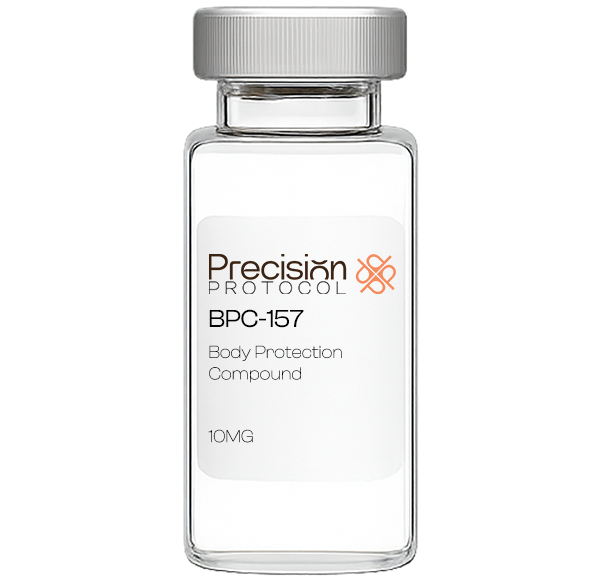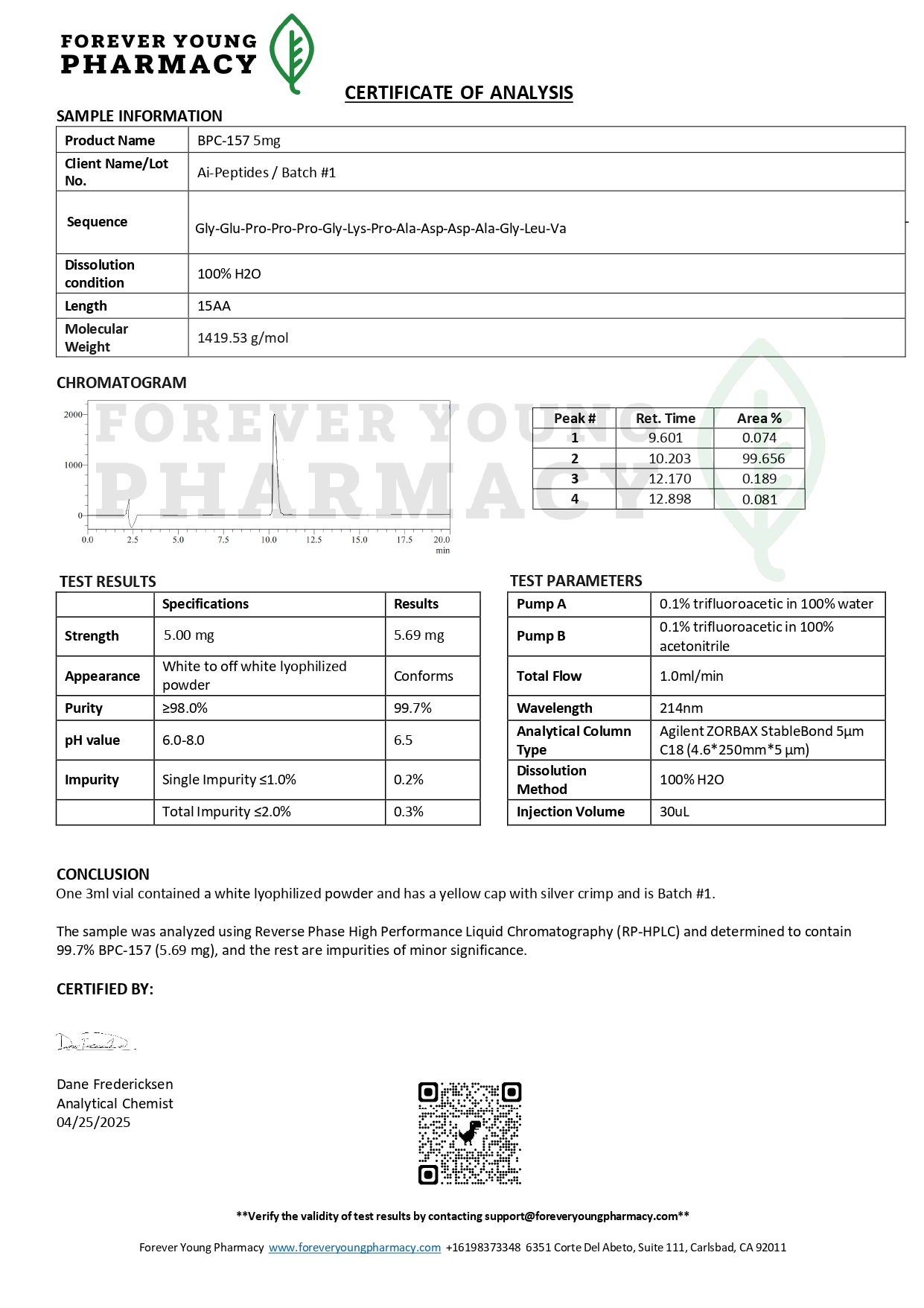This product is intended as a research chemical only. Not for human use. Peptides will arrive in a lyophilized (powder) form for maximum stability.
BPC-157, short for Body Protection Compound-157, is a derivative of body protection compound (BPC). BPC is a protein found naturally in the human digestive tract. It plays a significant role in protecting the lining of the gastrointestinal tract from damage, promoting healing, and encouraging blood vessel growth.
Synthetic BPC-157, a pentadecapeptide comprising 15 amino acids isolated from the much larger BPC protein, has been found to retain many of the healing properties of its parent molecule. In particular, BPC-157 has been shown to have effects on:
- Wound healing
- Blood vessel growth
- The coagulation cascade
- Nitric oxide generation
- Immune system function
- Gene expression
- Hormone regulation (particularly in the gastrointestinal nervous system)
Sequence: Gly- Glu-Pro-Pro-Pro-Gly-Lys-Pro-Ala-Asp-Asp-Ala-Gly-Leu-Val
Molecular Formula: C62H98N16O22
Molecular Weight: 1419.556 g/mol
PubChem CID: 108101
Storage Instructions:
All of our products are manufactured using the Lyophilization (Freeze Drying) process, which ensures that our products remain 100% stable for shipping for up to 3-4 months.
Once the peptides are reconstituted (mixed with bacteriostatic water), they must be stored in the fridge to maintain stability. After reconstitution, the peptides will remain stable for up to 30 days.
Lyophilization is a unique dehydration process, also known as cryodesiccation, where the peptides are frozen and then subjected to low pressure. This causes the water in the peptide vial to sublimate directly from solid to gas, leaving behind a stable, crystalline white structure known as lyophilized peptide. The puffy white powder can be stored at room temperature until you’re ready to reconstitute it with bacteriostatic water.
Once peptides have been received, it is imperative that they are kept cold and away from light. If the peptides will be used immediately, or in the next several days, weeks or months, short-term refrigeration under 4C (39F) is generally acceptable. Lyophilized peptides are usually stable at room temperatures for several weeks or more, so if they will be utilized within weeks or months such storage is typically adequate.
However, for longer term storage (several months to years) it is more preferable to store peptides in a freezer at -80C (-112F). When storing peptides for months or even years, freezing is optimal in order to preserve the peptide’s stability.
For further information on proper storage techniques, click the link below:
Peptide Storage Information


